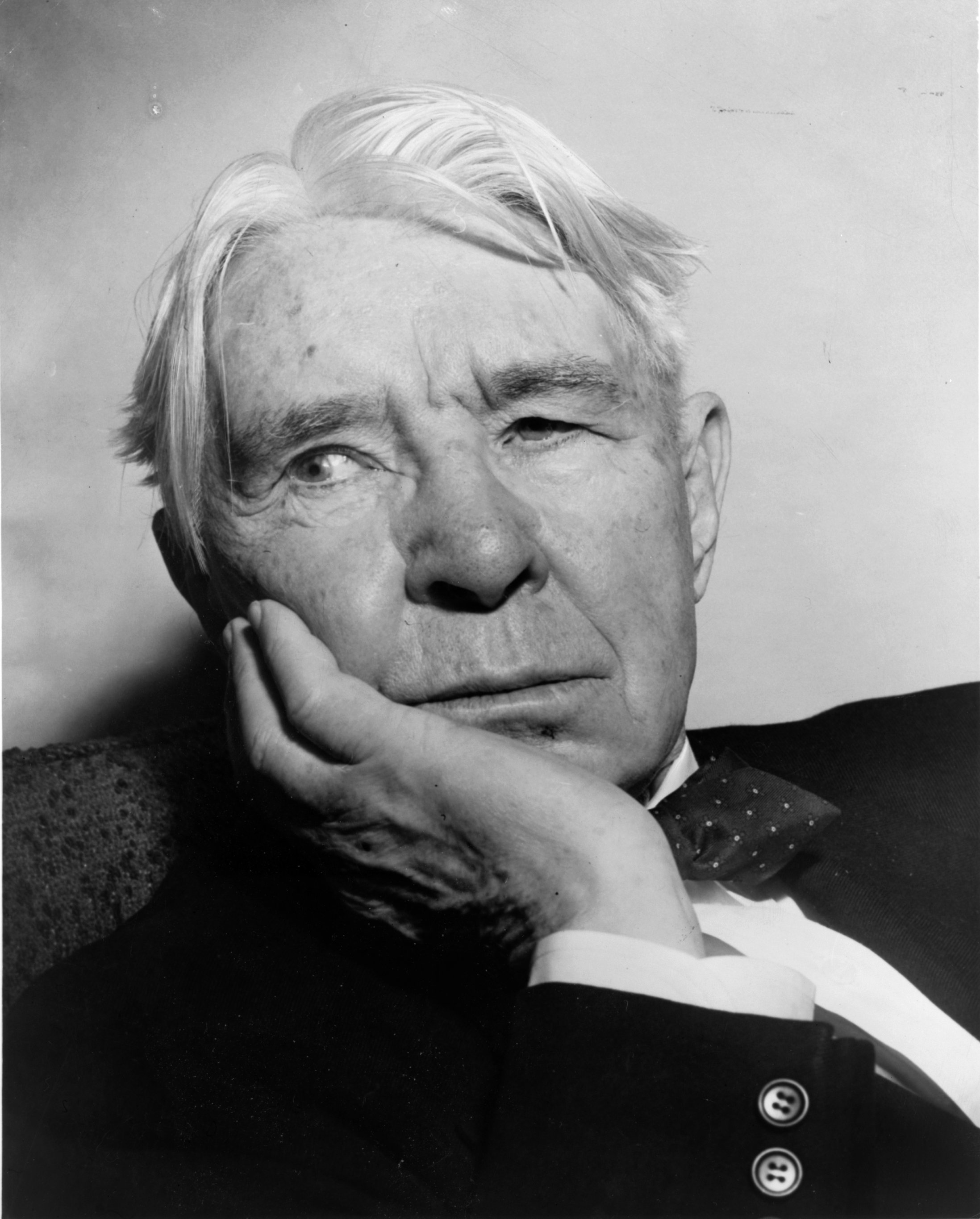FOG for Class 10 ENGLISH
THEME

Fog is a very small poem written by Carl Sandburg. He talks about how fog looks upon harbor and the city. He has very beautifully compared it to a cat .
THEME

"Fog" is a very small poem written by Carl Sandburg. He talks about how fog looks upon harbour and the city. He has very beautifully compared it to a cat.
HINGLISH
"Fog" Carl Sandburg dwara likhi gayi ek bahut hi choti kavita hai. Is kavita mein wo baat karte hai ki kis prakar dhundh(fog) bandargah(harbor) aur sheher(city) ko dekhti hai. Unhone uski tulna bahut hi khubsurti se billi(cat) sey ki hai.
EXPLANATION
"फोग" कार्ल सैंडबर्ग द्वारा लिखी गयी एक बहुत ही छोटी कविता है। इस कविता में वे बात करते है कि किस प्रकार धुंध बंदरगाह और शहर को देखती है। उन्होंने उसकी तुलना बहुत ही खूबसूरती से बिल्ली से की है।
ABOUT THE AUTHOR

Carl August Sandburg (1878-1967) was an American poet, writer and editor. He won three Pulitzer Prizes- two of them were for poetry and one for his biography of Abraham Lincoln. He wrote many short poems in his life.
ABOUT THE AUTHOR

Carl August Sandburg (1878-1967) was an American poet, writer and editor. He won three Pulitzer Prizes- two of them were for poetry and one for his biography of Abraham Lincoln. He wrote many short poems in his life.
HINGLISH
Carl August Sandburg (1878-1967) ek American kavi, lekhak aur sampadak the. Unhe 3 Pulitzer Prizes mille - unme se do kavita ke liye aur ek Abraham Lincoln ki atmakatha ke liye. Unhone apne jeewan mein bahut saari choti kavitaye likhi.
EXPLANATION
कार्ल अगस्त सैंडबर्ग (1878-1967) एक अमेरिकी कवि, लेखक और संपादक थे। उन्हें तीन पुलित्ज़र पुरस्कार मिले- उनमे से दो कविता के लिए और एक अब्राहम लिंकन की आत्मकथा के लिए थे। उन्होने अपने जीवन में बहुत सारी छोटी कविताएँ लिखी।
PARAGRAPH 1

The fog comes
on little cat feet.
It sits looking
over harbour and city
on silent haunches
and then moves on.
PARAGRAPH 1

The fog comes
on little cat feet.
It sits looking
over harbour and city
on silent haunches
and then moves on.
HINGLISH
Kavi kohre(fog) ka varnan kar raha hai. Kohra(fog) vatavaran mein maujood paani ki choti-choti boondo(water droplets) ka ghana baadal hai. Yeh amtaur par sardi ke mausam mein dekha jaata hai. Yaha kavi ne shehar(city) aur bandargah(harbor) ki or kohre(fog) ke badhne ka varnan kiya hai. Unka kehna hai ki kohra(fog) ekdum billi(cat) ki tarah aata hai. Iska matlab hai ki kohra(fog) billi(cat) ki tarah bahut dheere-dheere aur shaanti se shehar(city) ki or badhta hai. Koi nahi jaanta ki kohra(fog) kab aur kaise shehar(city) mein pravesh karega. Isliye, kohre(fog) ki tulna us billi(cat) se ki jati hai jo apratyaashit(Unexpected) tarike se humare ghar mein pravesh karti hai. Aage unka kehna hai ki kohra(fog) poore shehar par chha jaata hai jaise ek billi(cat) apne pairo(feet) ko peechhe modkar chupchaap baith jaati hai aur aas-paas ki jagah aur cheejo ko dekhti hai. Isii tarah, aisa lagta hai ki kohra(fog) chupchap poore shehr aur bandargah(harbor) ko dhak leta hai aur billi ki tarah chaaro or dekh raha hai. Kuch der baad kohra(fog) shehar(city) ko chhodkar aage badh jaata hai. Kavi aisa isliye kehta hai kyonki yeh ek praakrtik(natural) ghatna hai ki kohra(fog) ek sthaan par adhik samay tak nahi rehta aur kuch ghanto(hours) ke baad vah sthaan chhod deta hai. To, yaha bhi kavi kehta hai ki billi(cat) ki tarah, kohra(fog) bina kisi ki nazar mein aaye bahut chupchaap jagah chhod deta hai.
IMPORTANT WORDS
On Haunches: Sitting with knees bent;कूबड़ पर
Harbour: a place on the coast where ships can be tied up;बंदरगाह
IMPORTANT WORDS
On Haunches: Sitting with knees bent,कूबड़ पर
Harbour: a place on the coast where ships can be tied up;बंदरगाह
EXPLANATION
कवि कोहरे का वर्णन कर रहा है। कोहरा वातावरण में मौजूद पानी की छोटी-छोटी बूंदों का घना बादल है। यह आमतौर पर सर्दी के मौसम में देखा जाता है। यहाँ कवि ने शहर और बंदरगाह की ओर कोहरे के बढ़ने का वर्णन किया है। उनका कहना है कि कोहरा एकदम बिल्ली की तरह आता है। इसका मतलब है कि कोहरा बिल्ली की तरह बहुत धीरे-धीरे और शांति से शहर की ओर बढ़ता है। कोई नहीं जानता कि कोहरा कब और कैसे शहर में प्रवेश करेगा। इसलिए, कोहरे की तुलना उस बिल्ली से की जाती है जो अप्रत्याशित तरीके से हमारे घर में प्रवेश करती है। आगे उनका कहना है कि कोहरा पूरे शहर पर छा जाता है जैसे एक बिल्ली अपने पैरों को पीछे मोड़कर चुपचाप बैठ जाती है और आस-पास की जगहों और चीजों को देखती है। इसी तरह, ऐसा लगता है कि कोहरा चुपचाप पूरे शहर और बंदरगाह को ढँक लेता है और बिल्ली की तरह चारों ओर देख रहा है। कुछ देर बाद कोहरा शहर को छोड़कर आगे बढ़ जाता है। कवि ऐसा इसलिए कहता है क्योंकि यह एक प्राकृतिक घटना है कि कोहरा एक स्थान पर अधिक समय तक नहीं रहता और कुछ घंटों के बाद वह स्थान छोड़ देता है। तो, यहाँ भी कवि कहता है कि बिल्ली की तरह, कोहरा बिना किसी की नज़र में आये बहुत चुपचाप जगह छोड़ देता है।
SUMMARY
SUMMARY
HINGLISH
EXPLANATION
इस कविता मे कवि ने बहुत सुन्दर तरीके से दिखाया हैं कि धुंध कैसे एक बिल्ली की तरह शांति से आती हैं। बिल्ली जिस तरह अपने घुटनो पर बैठती हैं। धुंध को देख कर ऐसा लगता हैं कि वो भी वैसे ही बैठ कर शांति से बंदरगाह और शहर को देखती हैं और फिर आगे चली जाती है।
POETIC DEVICE
Metaphor: Fog is compared to a cat (On little cat feet)
Enjambment: When a sentence continues to next line (It sits looking….. then moves on)
Personfication: fog has been personified - Fog comes, it sits.
POETIC DEVICE
Metaphor: Fog is compared to a cat (On little cat feet)
Enjambment: When a sentence continues to next line (It sits looking….. then moves on)
Personfication: fog has been personified - Fog comes, it sits.
SHORT QUESTIONS ANSWERS:
1. What does Sandburg think the fog is like?
A. Sandburg thinks the fog is like a cat that comes silently so that no one can sense its arrival.
2. How does the fog come?
A. According to the poet, the fog comes very silently like a cat.
3. What does ‘it’ in the third line refer to?
A. ‘It’ refers to the fog.
4. Does the poet actually say that the fog is like a cat? Find three things that tell us that the fog is like a cat.
A. The three things that tell us that the fog is like a cat are as follows:
i) The fog comes on its little cat feet: This means that the fog enters silently just like cat.
ii) It sits looking over harbor and city: The fog is compared to a cat as cats also like to sit and look here and there and fog is also looking while it sits over the city.
iii) On silent haunches and then moves on: The fog sits on its bent legs just like a cat and then moves away very quickly and silently.
5. Does this poem have a rhyme scheme? Poetry that does not have an obvious rhythm or rhyme is called ‘free verse’
A. There is no rhyme scheme in the poem. It has neither an internal nor external rhyme scheme. Hence, we can say that it is in free verse.
QUESTIONS ANSWERS
1. What does Sandburg think the fog is like?
A. Sandburg thinks the fog is like a cat that comes silently so that no one can sense its arrival.
2. How does the fog come?
A. According to the poet, the fog comes very silently like a cat.
3. What does ‘it’ in the third line refer to?
A. ‘It’ refers to the fog.
4. Does the poet actually say that the fog is like a cat? Find three things that tell us that the fog is like a cat.
A. The three things that tell us that the fog is like a cat are as follows:
i) The fog comes on its little cat feet: This means that the fog enters silently just like cat.
ii) It sits looking over harbor and city: The fog is compared to a cat as cats also like to sit and look here and there and fog is also looking while it sits over the city.
iii) On silent haunches and then moves on: The fog sits on its bent legs just like a cat and then moves away very quickly and silently.
5. Does this poem have a rhyme scheme? Poetry that does not have an obvious rhythm or rhyme is called ‘free verse’
A. There is no rhyme scheme in the poem. It has neither an internal nor external rhyme scheme. Hence, we can say that it is in free verse.
PREVIOUS YEAR QUESTION AND ANSWERS
1. What does the poet want to convey through the poem ‘Fog’ ?
A. The poet ‘Carl Sandburg' takes pleasure in nature. The poet has compared difficulties to fog, he states that as the fog comes and goes in the same manner difficulties come and go. Poet has tried to give us hope and asked us to be brave enough to face problems; rather find solutions as difficulties will soon disappear and leave.
PREVIOUS YEAR QUESTION AND ANSWERS
1. What does the poet want to convey through the poem ‘Fog’ ?
A. The poet ‘Carl Sandburg' takes pleasure in nature. The poet has compared difficulties to fog, he states that as the fog comes and goes in the same manner difficulties come and go. Poet has tried to give us hope and asked us to be brave enough to face problems; rather find solutions as difficulties will soon disappear and leave.
GLOSSARY
On Haunches: Sitting with knees bent,कूबड़ पर
Harbour: a place on the coast where ships can be tied up;बंदरगाह
GLOSSARY
On Haunches: Sitting with knees bent;कूबड़ पर
Harbour: a place on the coast where ships can be tied up;बंदरगाह